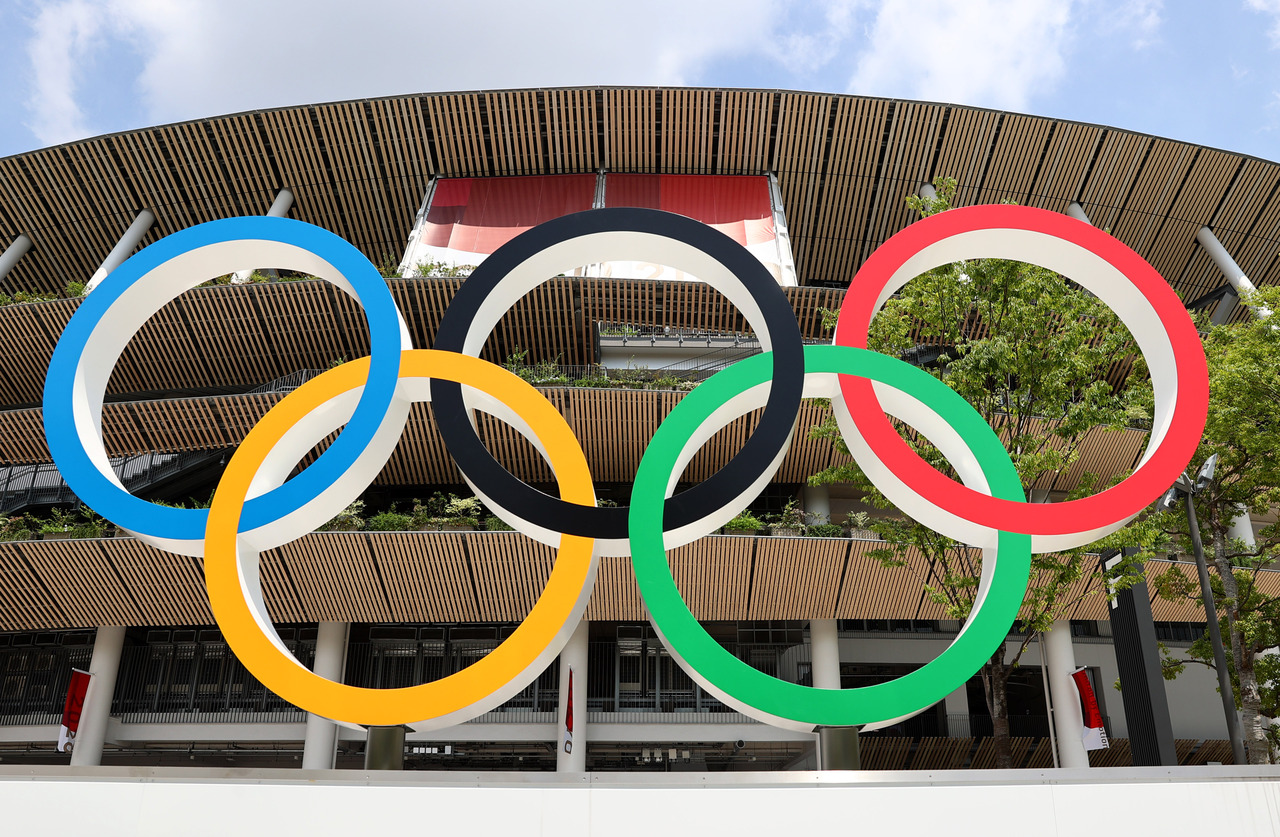Olympics: How Tokyo 2020 organisers are managing Covid-19
Sign up now: Get the biggest sports news in your inbox

Organisers are determined to prevent an outbreak at the Games which open July 23, 2021.
PHOTO: REUTERS
TOKYO (AFP) - The Tokyo Olympics will be like no other Games, with the spectre of coronavirus hanging over every part of the event, and organisers determined to prevent an outbreak.
Here is a look at some of the ways they will try to prevent infections among some 11,000 athletes, and what will happen if cases do emerge at the Games, which open on Friday (July 23).
What safety measures are there?
The latest rulebook for athletes and sports officials is 70 pages long, and the requirements start before they get to Japan.
Athletes must test negative for the virus twice within 96 hours of travel, and again when they land.
They are tested daily while in the country, and they have to leave the Olympic Village within 48 hours of their competition ending.
And there is no chance to soak up the atmosphere: they are not allowed anywhere except their accommodation and competition venues, with a ban on using public transport.
Masks are mandatory, even on the medal podium, with exceptions only for eating, sleeping, training and competing.
What about vaccines?
Olympic officials say 85 per cent of the athletes and teams staying in the Village will be vaccinated. Getting jabbed is not a requirement, but has been strongly encouraged.
But the anti-coronavirus rules are the same for those taking part in the Games, whether they are vaccinated or not.
Tokyo 2020 has organised vaccinations for 38,000 officials, volunteers, local media and airport staff, among others.
What happens if there is an infection?
Athletes are given daily saliva antigen tests, and if they come back positive or unclear, they will have a follow-up saliva PCR test, which is more sensitive.
If that test is positive, they will have a nasal and throat swab PCR test. A third positive result will mean the athlete is out of the Games.
They have to isolate or be hospitalised, with no chance of rejoining the competition.
What if you are a close contact?
Things are a bit more complicated for "close contacts" of an infected person.
The term only applies to people who have spent 15 minutes or more within one metre of the infected person without wearing a mask.
That might include a roommate, or a dining companion but probably not a tennis partner, for example.
Close contacts are separated from others, put in individual rooms and asked to eat alone.
Initially, organisers said a decision on whether they could compete would be made on a "case-by-case", based on the risk of them spreading infection.
But now they say close contacts who test negative six hours before an event can take part.
What if someone gets really sick?
Medical staff and facilities are key at any Games, but the stakes are higher given the pandemic.
Organisers say there will be some 7,000 medical staff, including doctors and nurses, but have declined to specify the number of beds available.
The push to find these resources has been controversial in Japan, given a recent surge in infections that stretched the local healthcare system.
To head off that criticism, the International Olympic Committee has pledged to bring additional medical staff from outside to reduce pressure on resources.
Is everyone insured?
Olympic participants from overseas, including athletes, team officials and media, are required to have insurance that will cover medical treatment and repatriation.
Olympic rulebooks specify that the insurance must include cover for Covid-19.
Before they enter Japan athletes will need to sign a "written pledge" to obey coronavirus restrictions, and take responsibility for their trip.
"Despite all the care taken, risks and impacts may not be fully eliminated," warns the Olympic playbook, which details anti-virus measures.
"Therefore you agree to attend the Olympic and Paralympic Games at your own risk."


